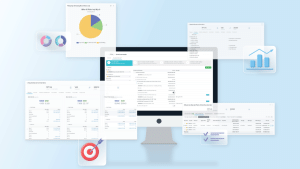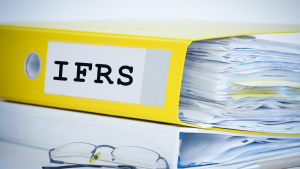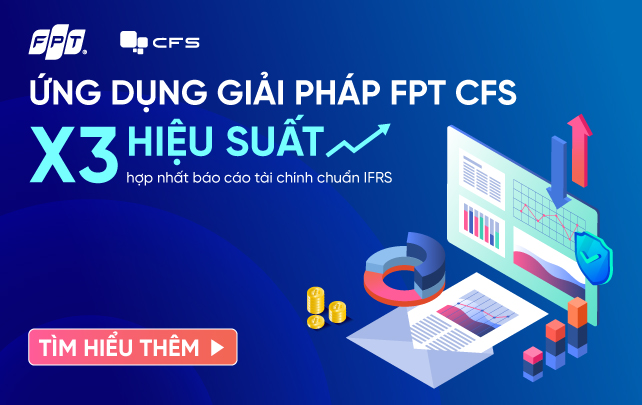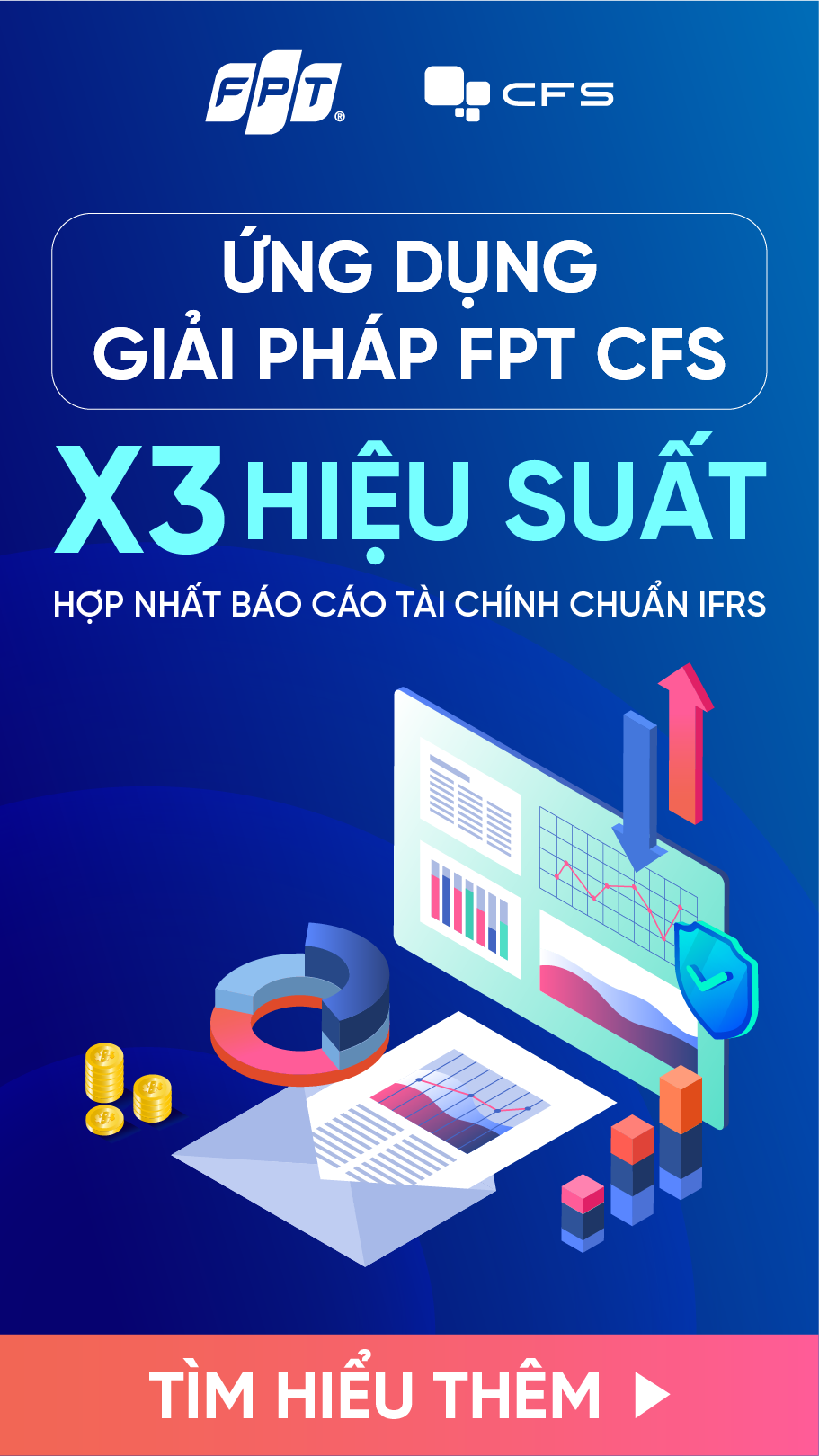Financial data allows investors and managers to evaluate the financial performance of a business or an industry through indicators such as profit, profitability and profit margin. Financial statements are an important and reliable source of data for investors to consider in making decisions. This helps determine the financial health and profitability of the business, and identify investment opportunities more clearly. However, effectively planning the roadmap for converting financial statements between VAS and IFRS is a big challenge, requiring careful preparation and a clear strategy.
Differences between VAS and IFRS
One of the biggest differences between VAS and IFRS is the level of detail and scope of application. VAS, which focuses mainly on Vietnamese accounting regulations, has a narrower scope of application. In contrast, IFRS is a system of international accounting standards, widely used globally with the aim of creating a common language.
Another important difference is the method of recording and measuring assets, liabilities, revenues and expenses. VAS financial reporting standards are often based on historical cost accounting principles, where assets and liabilities are recorded at their original values. In contrast, IFRS requires recognition and measurement based on fair value, helping financial statements more accurately reflect the financial situation of the enterprise.
In addition, differences in presentation and disclosure are also an important factor. VAS has quite specific but simple regulations on the presentation and disclosure of information in financial statements, while IFRS requires enterprises to present and disclose information in a more detailed and comprehensive manner, thereby helping users of financial statements better understand the financial situation and operating results of the enterprise.

4 factors to help the process of converting financial statements between VAS and IFRS succeed
Commitment and strategy, vision of senior management
The success of the IFRS conversion process depends largely on the level of commitment and support from the senior management of the enterprise. Leaders need to clearly understand the importance and long-term benefits of applying IFRS financial reporting standards. From there, make decisions and allocate sufficient resources (human resources, finance, time) to ensure the conversion process is effective and uninterrupted.
The management needs to develop a clear conversion strategy, including determining the objectives, scope, time and necessary resources. The IFRS financial reporting conversion process will affect many aspects of the enterprise, including accounting processes, information systems, and organizational culture. Therefore, leaders need to manage appropriate budget allocation and integrate effective technology solutions to successfully implement IFRS standards into the current financial reporting conversion plans of the enterprise.
Build a conversion roadmap and apply IFRS financial reporting standards for the company
To successfully implement IFRS, enterprises need to design a separate conversion roadmap, starting with assessing the current status of the current accounting system and identifying gaps between VAS and IFRS. A detailed analysis of existing accounting policies, processes and systems helps enterprises identify areas that need to be changed, thereby determining conversion priorities based on impact and available resources. After that, enterprises need to build a detailed conversion plan, with a clear timeline, assigning specific responsibilities and budget estimates for each step, ensuring that all activities are implemented effectively.
To mitigate risk, businesses should conduct testing on a specific piece of data or department, collect feedback from stakeholders, and adjust the roadmap based on the results. Research from KPMG and Deloitte shows that businesses that implement detailed transformation plans and test before full implementation often save up to 20% in costs and reduce risks by 30% compared to businesses that do not apply these measures.
Selecting and implementing appropriate financial information systems
First, businesses need to assess the capabilities of the current system, ensuring that the system can effectively support the collection, processing, and reporting of information according to IFRS standards. If the current system is not sufficient, businesses need to select and implement new accounting and financial software solutions. Successful IFRS implementations are often associated with successful implementation of ERP (Enterprise resource planning) systems to upgrade the system to meet the requirements of the business. At the same time, data quality and security management are also important factors, with internal control processes and advanced security technology needed to protect the integrity of financial information. To increase efficiency, integrating and automating financial processes is essential, helping to save time, minimize errors and improve the ability to analyze information for strategic decisions.
Converting from VAS to IFRS often requires updating or changing information technology (IT) systems to ensure the ability to collect, process, and report financial data according to the new standards. Integrating and upgrading accounting software to automate financial processes is essential, helping to save time, reduce errors and improve information analysis capabilities to support the conversion process effectively.
Data and reports according to VAS standards are not fully compatible with IFRS due to differences in accounting principles, recording methods and information presentation. To overcome this problem, businesses can use automation tools to adjust data from VAS to IFRS. A comprehensive financial reporting consolidation solution such as FPT CFS allows data integration from various sources, ensuring accuracy in financial reporting according to VAS standards, declaring and managing related information, as well as evaluating and recording differences according to IFRS standards. Users only need to set parameters for calculation models, and FPT CFS will complete the rest.
FPT CFS not only simplifies the accounting process but also enhances the ability to automate the preparation and consolidation of financial reports by up to 99%, reduces the time to prepare reports by up to 80% and improves the time to issue reports by at least 60% compared to before. With the ability to provide data and reports in real time, this solution helps leaders monitor and control the financial situation of the enterprise more effectively, while freeing up professional resources to focus on strategic financial tasks.

Cooperating with international auditors
Cooperating with international auditors is a strategic step in the IFRS conversion process, as human resources play an important role in ensuring quality and efficiency. Enterprises need to assess the current skills of their staff, thereby developing training programs to improve knowledge of international accounting standards. At the same time, to maintain and attract talent in the context of fierce competition, enterprises need to have attractive salary and bonus policies, a professional working environment and a clear career path. Cooperating with international experts and auditors not only helps enterprises access specialized knowledge but also minimizes risks and optimizes the conversion process.
Read more: International Financial Reporting Standards IFRS: Water has reached the foot

Read more: The impact of digital transformation on IFRS conversion












